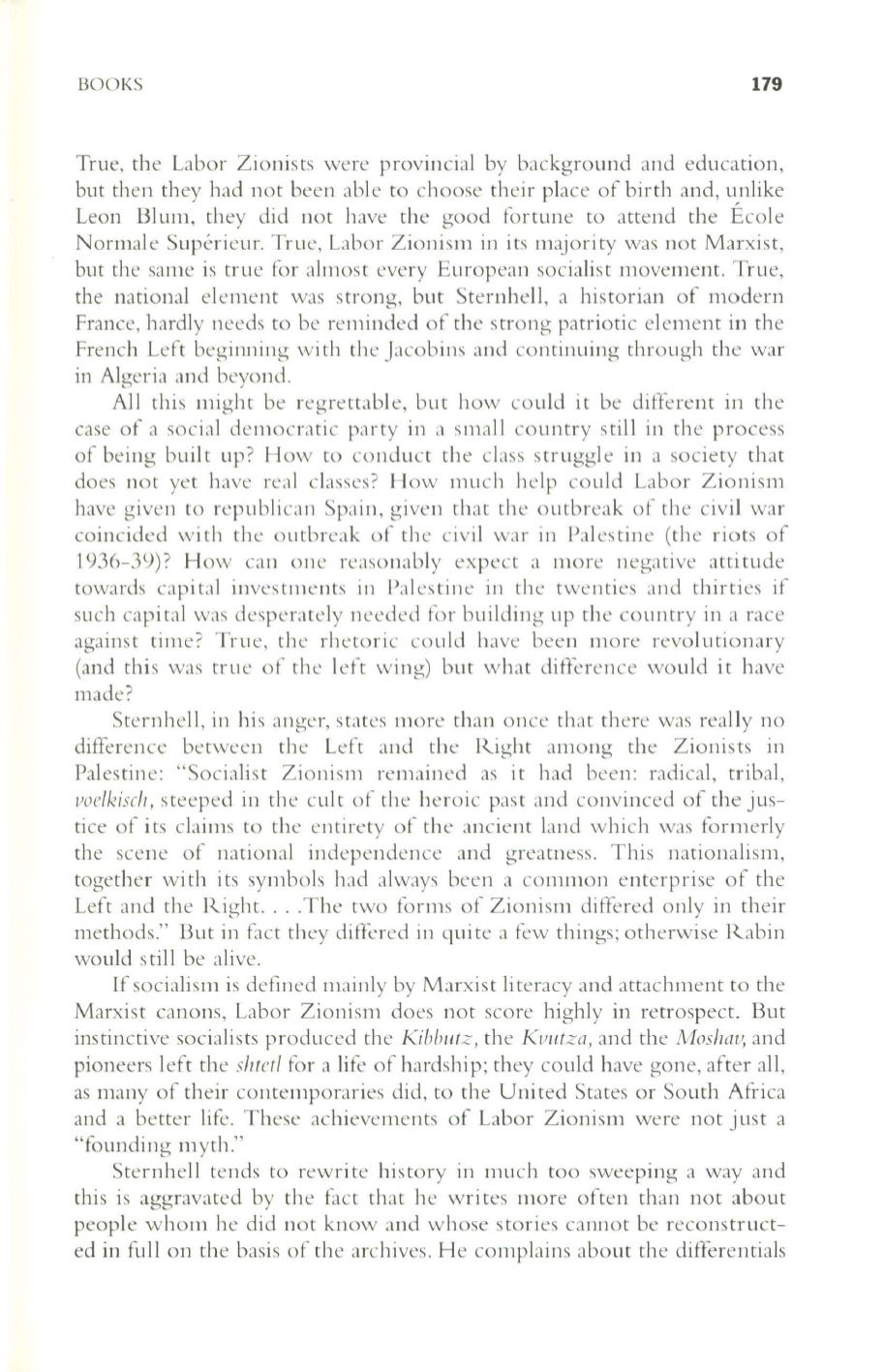
BOOKS
179
True, the Labor Zionists were provincial by background and education,
but then they had not been able to choose their place of birth and, unlike
Leon Blum, they did not have the good fortune
to
attend the Ecole
Normal e Superieur. True, Labor Zionism in its majori
ty
was not Marxist,
but the same is true for almost every European socialist movement. True,
the national element was strong, but Sternhell, a historian of modern
France, hardly needs to be reminded of the strong patriotic element in the
French Left beginning wi th the Jacobins and continuing through the war
in Algeria and beyond.
All this might be regrettable, but how could it be different in the
case of a social democratic party in a small country still in the process
of being built up? How to conduct the class struggle in a society that
does not yet have real classes? How much help could Labor Zionism
have given
to
republican Spain, given that the outbreak of the civil war
coincided with the outbreak of the civil war in Palestine (the riots of
1936-39)? How can one reasonably expect a more negative attitude
towards capital investments in Palestine in the twenties and thirties if
such capital was desperately needed for building up the country in a race
against time? True, the rhetoric could have been more revol utionary
(and this was true of the left wing) but what difference would it have
made?
Sternhell, in his anger, states more than once that there was really no
difference between the Left and the Right among the Zionists in
Palestine: "Socialist Zionism remained as it had been: radical, tribal,
voclkiscll,
steeped in the cult of the heroic past and convinced of the jus–
tice of its claims to the entirety of the ancient land which was formerly
the scene of national independence and greatness. This nationalism,
together wi th its symbols had always been a common enterprise of the
Left and the l'Z.ight. . ..The two forms of Zionism differed only in their
methods." But in fact they differed in quite a few things; otherwise Rabin
would still be alive.
If socialism is defined mainly by Marxist literacy and attachment to the
Marxist canons, Labor Zionism does not score highly in retrospect. But
instinctive socialists produced the
Kibblltz,
the
KVlltza,
and the
Moshav,
and
pioneers left the
shtet!
for a life of hardship; they could have gone, after all,
as many of their conte1l1poraries did, to the United States or South Africa
and a better life. These achievements of Labor Zionism were not just a
"founding myth."
Sternhel l tends to rewrite history in much too sweeping a way and
this is aggravated by the fact that he wri tes more often than not about
people whom he did not know and whose stories cannot be reconstruct–
ed in full on the basis of the archives. He complains about the differentials


